Imperialism

In April 1965, a popular rebellion in the Dominican Republic toppled the remnants of the U.S. backed Trujillo dictatorship thus setting the stage for the master tinkers of America’s Cold War machine. In this groundbreaking study, Eric Thomas Chester carefully reconstructs the events that followed into a thriller of historical sweep. The result is a stunning portrait of how President Lyndon Johnson used the C.I.A., the Pentagon, and the State Department to suppress the rebellion and, ultimately, orchestrate events surrounding the national election to insure an outcome favorable to U.S. interests. | more…

This classic work, first published in France in 1955, profoundly influenced the generation of scholars and activists at the forefront of liberation struggles in Africa, Latin America, and the Caribbean. Nearly twenty years later, when published for the first time in English, Discourse on Colonialism inspired a new generation engaged in the Civil Rights and Black Power and anti-war movements. | more…

Days and Nights of Love and War is the personal testimony of one of Latin America’s foremost contemporary political writers. In this fascinating journal and eloquent history, Eduardo Galeano movingly records the lives of struggles of the Latin American people, under two decades of unimaginable violence and extreme repression. Alternating between reportage, personal vignettes, interviews, travelogues, and folklore, and richly conveyed with anger, sadness, irony, and occasional humor, Galeano pays loving tribute to the courage and determination of those who continued to believe in, and fight for, a more human existence. | more…
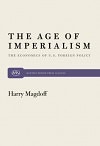
Magdoff’s analysis is the foundation upon which the work of an entire tradition of Monthly Review authors rests. | more…
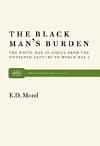
Since it was first published in 1920, The Black Man’s Burden has been widely recognized as a prime source of education and influence in the field of African history. | more…
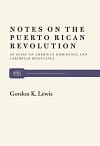
This essay on Puerto Rico analyzes the deepening crisis in American capitalism and how it inevitably affects Puerto Rico. Essentially, Lewis asks and seeks to answer three questions: What is the nature of Puerto Rican society after a decade of dramatic and traumatic change? What should be the strategy of freedom? What can be, ought to be, the nature of the new Puerto Rican society, once it is released from American rule? | more…

Within a year after the triumphal entry into Havana at the beginning of 1959, Che Guevara began to set down the history of the guerrilla war. Fearful that the events would “dissolve into the past” and that an important part of the history of America would be lost, he urged other leaders of the Revolution to do the same, asking only “that the narrator be strictly truthful.” | more…

This historical work, released on the eve of the fiftieth anniversary of the Korean War, overturns the conventional wisdom on Korea. Official U.S. history portrays the Korean War as a notable example of America’s selfless commitment to democracy. According to Cold War history, South Korea emerged from the conflict to create a prosperous and dynamic economy, while U.S. troops served as the nation’s peacekeepers. This book, in a wide canvass of the historical background, contests those claims. | more…
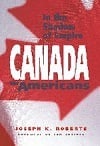
In the Shadow of Empire: Canada for Americans invites Americans to take a closer look at their neighbor to the north, challenging the commonly held view that Canada is just like the United States. American-born but a longtime resident of Canada, Joseph K. Roberts brings into focus every major feature of Canada’s politics, from the distinctiveness of a society that does not stigmatize government action to the struggles of indigenous peoples and the quest of French-speaking Quebec for autonomy. | more…
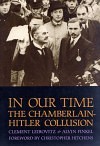
When British Prime Minister Neville Chamberlain returned from his Munich meetings with Adolf Hitler in September 1938, he proclaimed that he held in his hands a document guaranteeing “peace in our time.” In the decades since, Chamberlain's folly has become the occasion for a commonplace historical lesson: that when the “good” innocently accept the assurances of the “evil,” the result is catastrophic. | more…
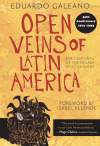
Since its U.S. debut a quarter-century ago, this brilliant text has set a new standard for historical scholarship of Latin America. It is also an outstanding political economy, a social and cultural narrative of the highest quality, and perhaps the finest description of primitive capital accumulation since Marx. | more…

Let Them Eat Ketchup! — the title comes from a Reagan administration decision to classify ketchup as a vegetable in federal school lunch programs — explains: how governments define and measure poverty, how and why official definitions of poverty fall short, and the failure to deal with the real suffering and inequality in our “class-free” society. | more…











